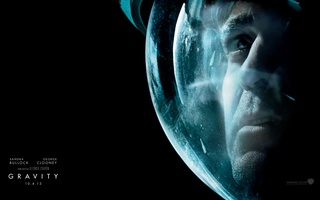My senior year of high school was a tough time for me. By that I mean First World Problems like sketchy internet connections and being unable to put my in my contacts that compounded until I felt like I existed in a state of what any SAT vocabulary book would call “malaise.” Some of my grievances were more relatable than others—I was dealing with universal problems such as unrequited love, teenage angst, and the occasional pimple that ballooned into a pus-filled monstrosity that would indelibly crush the self-esteem of any freshmen with overstuffed Jansport backpack in tow.
In order to deal with my FWPs, I took solace in simple pleasures such as procrastinating and going to bed when it was still light out. That didn’t leave much time for reading the assigned books in my senior year literature class. For every half-hearted essay about “Invisible Man,” a SparkNotes “study session” for “For Whom the Bell Tolls.”
So when my teacher assigned “The Great Gatsby,” I figured it would be the same drill: SparkNote, bullshit, repeat. But this book appealed to my laziness—it wasn’t even 200 pages. I figured I could read it in a couple hours and participate in class so that my teacher would assume I read every book she assigned. It’s not that I didn’t like reading; it just wasn’t appealing to be forced to read a book and dissect it until it was nothing more than a dozen metaphors about losing your virginity and a few symbols meaning sex. But “Gatsby” is such a life-changing book that even hour-long discussions about the importance of color in the novel couldn’t kill its brilliance.
From page one, I was engrossed by F. Scott Fitzgerald’s poetic prose and humorous wit. His characters were fascinating. Nick Carraway, the novel’s narrator, was an all-too-relatable blend of humble and snob. The book’s titular character Jay Gatsby was mysterious and tragic, and the other characters in the book were comic in their shallowness—just like some of my classmates. When I finished the book it became one of few school-assigned books that didn’t make me think, “Is this only considered a ‘classic’ because it’s old and there weren’t many books published at that time?”
If I had never picked up “Gatbsy” after my senior year, then it wouldn’t be worth mentioning; it would have just been another book that I enjoyed during high school. But this past summer I decided to reread “Gatsby” during my two-hour-long bus rides to my improv class. When I first read the book I saw it as a story about a man willing to do anything for the woman he loved, as evidenced by the poem that opens the book:
“Then wear the gold hat, if that will move her;
If you can bounce high, bounce for her too,
Till she cry ‘Lover, gold-hatted, high-bouncing lover,
I must have you!’”
I saw something more than a love story.
As homeless people and the merely eccentric piled onto the bus shouting obscenities and singing show tunes at the top of their lungs I sat there, shyly reading “Gatsby,” slowly and carefully. And what I found wasn’t a story about a great love but a story about a man who wanted to make something of himself, a man who invented a new name and persona and became filthy stinking rich—just like a 1920s version of Lady GaGa.
What makes great books great is their ability to seemingly apply directly to life. When I read “Gatsby” in high school, I was concerned with love, and that’s why my main takeaway was that even men in the 1920s had the same romantic problems that I do. But now, I see Jay Gatsby as a man who made himself into a legend, not just for love but for the advantages of being wealthy and successful without being born into that life.
Jay Gatsby probably shouldn’t be my literary inspiration due to the fact that his wealth came from illicit business ventures and psychotic obsession bent on recapturing missed opportunities as evidenced when he says, “Can’t repeat the past? Why of course you can!” This is a hint that one shouldn’t go through life with his philosophy, but it’s hard not to admire his unapologetically arrogant view of life.
—Staff writer Aaron H. Aceves can be reached at aaceves@college.harvard.edu.
Read more in Arts
‘Sinister’ Inverts Stale Horror Movie TropesRecommended Articles
-
Off the BooksNobody reads anymore. It’s not that we’re illiterate. We’re just un-booked.
-
 A.R.T.'s 'Gatz' Takes Classic Tale to Stage in Novel Adaptation
A.R.T.'s 'Gatz' Takes Classic Tale to Stage in Novel Adaptation -
A Status Report on the American DreamWe are all here because we worked hard, but something sinister lurks underneath every long night I spend in Lamont. I am faced with cold reality—that luck is what carried me here, and there are thousands of others with potential, smarts, and drive who did not receive the same opportunity. I’m not talking about those unlucky individuals who were forced to go to sub-par schools like Yale. I’m talking about those who may not have had time for homework because they had to hold down a job and take care of their siblings, or those who were never even told that college was a possibility for them.
-
 "Gatsby" Not So Great
"Gatsby" Not So Great -
 Top 10 Films of 2013
Top 10 Films of 2013













